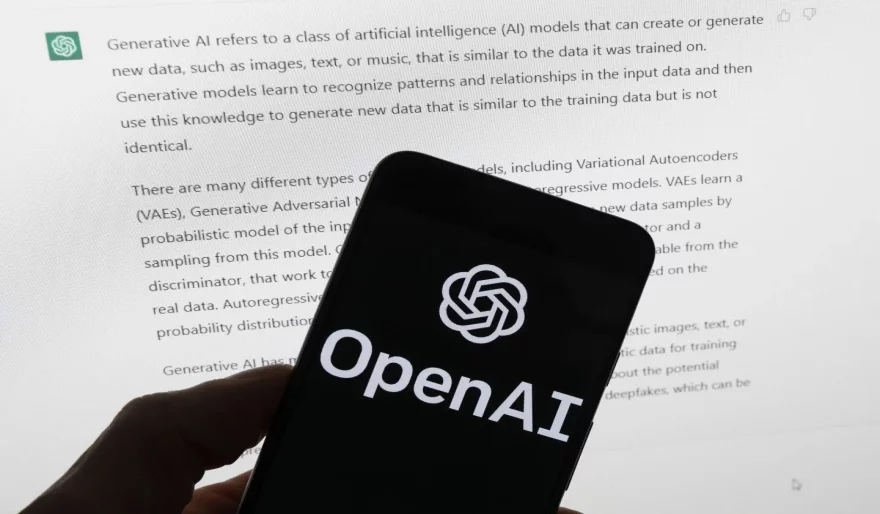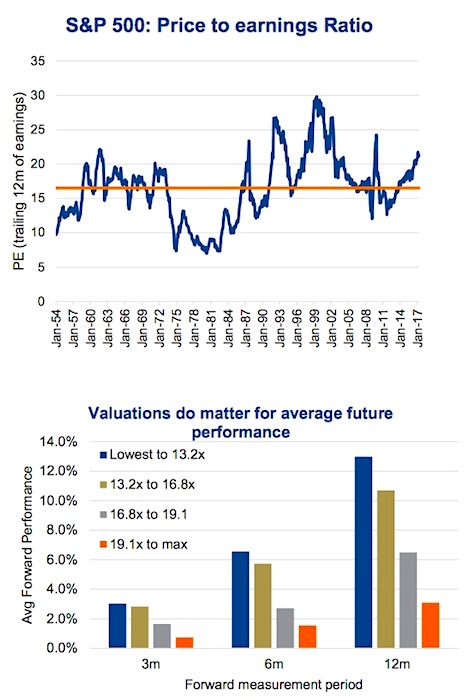FTC Probe Into OpenAI: Implications For AI Development And Regulation

Table of Contents
Data Privacy Concerns and the FTC's Focus
The FTC's investigation likely centers on OpenAI's data collection and usage practices. Concerns revolve around potential violations of existing data privacy laws like the General Data Protection Regulation (GDPR) in Europe and the California Consumer Privacy Act (CCPA) in the US. The sheer volume of data used to train OpenAI's models—including vast amounts of text and code scraped from the internet—raises serious questions about user consent and data security.
- Potential breaches of user privacy: The use of personal data without explicit consent is a major concern. The FTC will likely scrutinize OpenAI's methods for obtaining and utilizing this data.
- Lack of transparency: OpenAI's data handling processes may lack the transparency required by data privacy regulations. Users need to understand how their data is collected, used, and protected.
- Concerns about data security: The massive datasets used by OpenAI are prime targets for cyberattacks. The FTC will investigate the security measures in place to protect this sensitive information.
- Potential legal challenges and fines: Non-compliance with GDPR and CCPA could result in substantial fines and legal repercussions for OpenAI.
Algorithmic Bias and Fairness Issues
Another key area of the FTC's investigation is likely to be algorithmic bias within OpenAI's models. While ChatGPT is lauded for its capabilities, it's not immune to the biases present in the data it was trained on. This can lead to discriminatory outcomes, perpetuating existing societal inequalities. The ethical considerations are significant, demanding accountability and transparency.
- Examples of identified biases: Reports of ChatGPT exhibiting gender, racial, and other biases highlight the challenges in creating truly neutral AI models.
- Mitigating algorithmic bias: Addressing bias in large language models is extremely difficult, requiring ongoing research, rigorous testing, and careful data curation.
- FTC's focus on fairness: The FTC is likely to prioritize ensuring that AI systems do not discriminate against protected groups.
- Robust testing and auditing: Independent audits and thorough testing are crucial to identify and mitigate biases before AI systems are deployed publicly.
The Impact on AI Development and Innovation
The FTC's investigation could significantly impact the pace of AI development and innovation. Increased regulatory scrutiny might create a chilling effect, potentially slowing down research and development. Companies may hesitate to invest heavily in AI technologies if faced with increased legal and compliance costs.
- Slowdown in development: Stricter regulations could increase the time and resources required to bring new AI products to market.
- Increased compliance costs: Meeting regulatory requirements will inevitably add to the financial burden on AI developers.
- Hindrance to innovation: Overly stringent regulations could stifle innovation by limiting experimentation and the exploration of new AI techniques.
- Balancing regulation and innovation: The challenge lies in finding a balance between responsible regulation and fostering the continued development of beneficial AI technologies.
The Need for a Clear Regulatory Framework for AI
The FTC's investigation underscores the urgent need for a clear and comprehensive regulatory framework for AI. This framework must address data privacy, algorithmic bias, and accountability mechanisms across the entire AI lifecycle. Global collaboration is essential to establish common standards and prevent a regulatory patchwork.
- Standardized AI ethics guidelines: Industry-wide ethical guidelines are necessary to guide AI development and deployment.
- Robust auditing and certification processes: Independent audits and certifications can ensure that AI systems meet established safety and fairness standards.
- Clear liability frameworks: Establishing clear legal liability for the actions of AI systems is crucial to hold developers and deployers accountable.
- International cooperation: Global collaboration is necessary to develop harmonized AI regulations and prevent regulatory arbitrage.
Conclusion
The FTC's probe into OpenAI has far-reaching implications for the future of AI development and regulation. The investigation highlights the critical need to address data privacy concerns, mitigate algorithmic bias, and establish a robust regulatory framework to ensure responsible AI innovation. The potential chilling effect on innovation must be balanced against the urgent need for accountability and consumer protection. Staying informed about the FTC's investigation and engaging in discussions about responsible AI development is crucial for shaping a future where AI benefits society as a whole. Let's work together to ensure the future of AI development incorporates robust safeguards and ethical considerations, moving beyond the immediate concerns surrounding OpenAI and ChatGPT to build a more responsible and equitable AI landscape.

Featured Posts
-
 Ukraine War Russia Resumes Offensive After Easter Ceasefire
Apr 22, 2025
Ukraine War Russia Resumes Offensive After Easter Ceasefire
Apr 22, 2025 -
 Why Current Stock Market Valuations Are Not A Cause For Alarm Bof A
Apr 22, 2025
Why Current Stock Market Valuations Are Not A Cause For Alarm Bof A
Apr 22, 2025 -
 Stock Market Live Tracking Dow Futures Dollar And Trade Tariffs
Apr 22, 2025
Stock Market Live Tracking Dow Futures Dollar And Trade Tariffs
Apr 22, 2025 -
 Private Credit Jobs 5 Crucial Dos And Don Ts To Get Hired
Apr 22, 2025
Private Credit Jobs 5 Crucial Dos And Don Ts To Get Hired
Apr 22, 2025 -
 Are High Stock Market Valuations A Concern Bof A Says No
Apr 22, 2025
Are High Stock Market Valuations A Concern Bof A Says No
Apr 22, 2025
